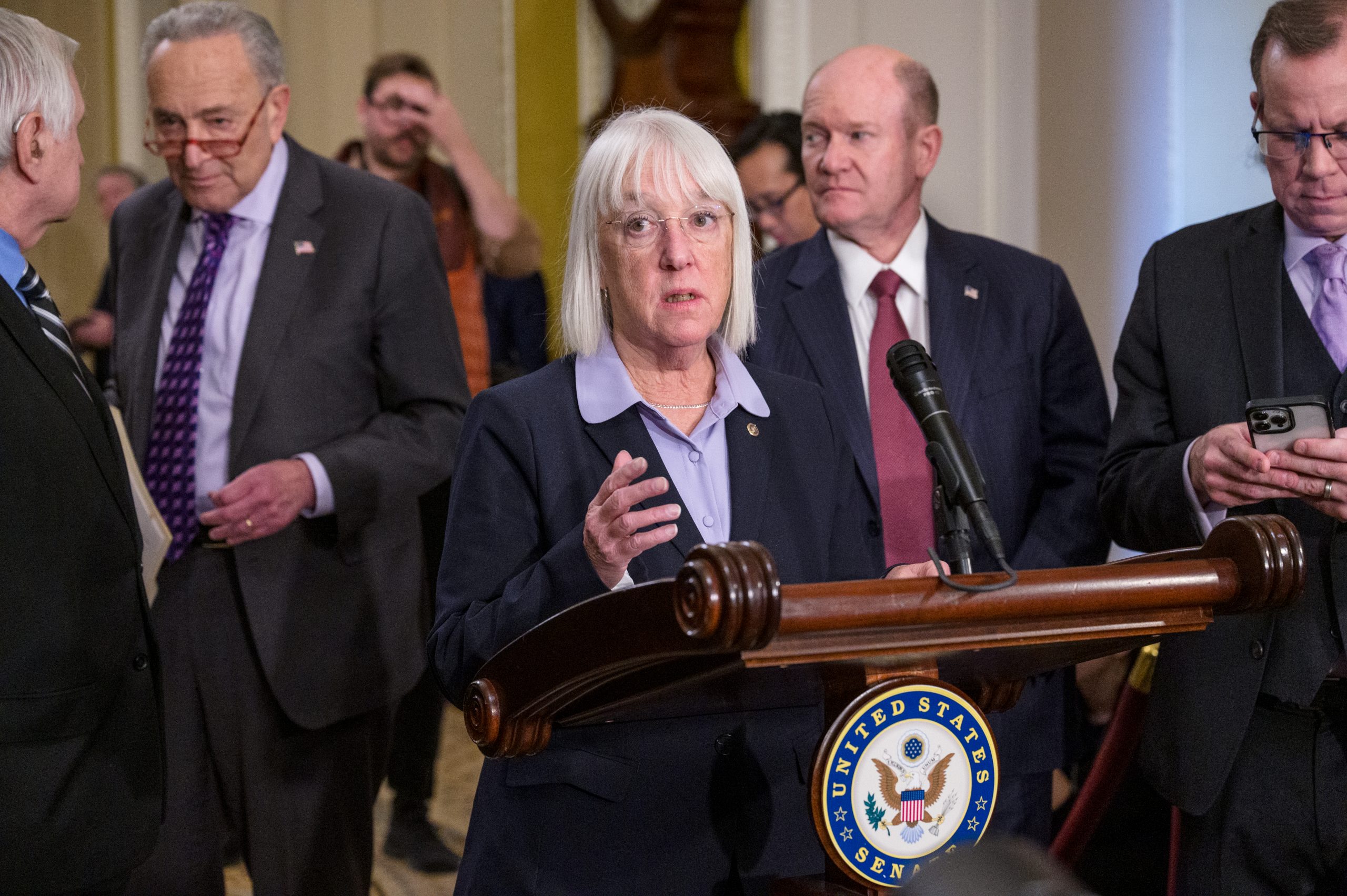Letter continues Murray’s long record of oversight on the flawed rollout of Electronic Health Record Modernization (EHRM) program
Murray successfully pushed VA to halt deployment of EHR until they get it right in Washington state at Spokane and Walla Walla VA centers
Murray leads comprehensive legislation to overhaul EHR, implement structural reforms
Washington, D.C. – Today, U.S. Senator Patty Murray (D-WA), Chair of the Appropriations Committee and a senior member of the Senate Veterans’ Affairs Committee, sent a letter to Department of Veterans Affairs Secretary Denis McDonough urging VA to consider feedback from providers and veterans in Spokane and Walla Walla as the agency evaluates the future of the Electronic Health Record Modernization (EHR) system, and reiterating that VA must not move forward on the rollout of EHR until the myriad issues that have plagued the system in the locations where it has been launched—including two VA Medical Centers in Washington state, Mann-Grandstaff in Spokane and Jonathan M. Wainwright in Walla Walla—are fixed.
The letter comes one year after VA’s announcement last April that it would halt future deployments of EHR in order to prioritize improvements at the five sites that currently use the system. Murray leads comprehensive legislation with Senate Veterans’ Affairs Committee Chairman Jon Tester (D-MT) and Sherrod Brown (D-OH) that would restructure, enhance, and strengthen the entire EHR program while also mandating aggressive reporting to Congress to increase oversight, accountability, and transparency.
“I have been clear from the start: VA cannot continue deploying the new EHR system until it works for providers and keeps patients safe in VA Medical Facilities where the system is already live,” Murray said in her letter to Secretary McDonough.
“As you evaluate the future of the EHR program, I would like you to consider some feedback we received from both providers and veterans in Spokane and Walla Walla. While some users reported improvements, we continue to receive troubling reports about the usability of the underlying system, including unexpected down time. The EHR program at Mann Grandstaff VA went live almost four years ago, and it is unacceptable that providers are still experiencing such significant challenges using the system. Furthermore, we continue to see unplanned outages or glitches in the system causing interrupted medical exams, referrals or notes not being recorded, inability to access patient files, and canceled procedures… While these challenges are the responsibility of Oracle-Cerner, VA should consider these ongoing issues as decisions are made about the future of the system at Department medical centers.”
Murray pointed to a technical issue in January that caused delays and errors for federal EHR users across the country, as well as continued concerns about functional workflow issues—and providers being forced to create workarounds to make the system work for them. “It is imperative for VA to incorporate provider and veteran feedback as it continues to assess the system. We will not get a properly functioning system unless we listen to those who use it every day… We have seen at Spokane and Walla Walla that without proper training and support, this system will only be a burden to providers and veterans, decreasing productivity and increasing patient wait times,” Murray wrote.
“My number one priority is patient safety. VA and Oracle Cerner need to ensure there are no more complications with medication management or patient record flags—no exceptions,” Murray concluded. “The safety and health of Washington state veterans includes ensuring our veterans have an electronic health system that works for them. After already sacrificing so much for our nation, they deserve to have the best health care experience possible. The bottom line is we must get this system right before it deploys to another facility.”
Senator Murray has been conducting oversight on the flawed EHR rollout in Washington state since the Trump Administration first negotiated the contract with Cerner (later acquired by Oracle), and at every point in the process since then. Murray has consistently pushed VA on its failed implementation of EHR—conducting oversight, holding the administration accountable, and pressing VA officials including the Secretary and Deputy Secretary of the VA on their plan to make the situation right. In her role as Chair of the Appropriations Subcommittee on Military Construction, VA, and Related Agencies, Murray has met with Oracle Cerner to discuss the issues VA providers face when using the EHR system and to get to the bottom of what can be done to fix the system.
In March 2022, Senator Murray demanded a pause of the Cerner Electronic Health Record system rollout in Washington state, citing patient safety risks, and demanding the concerns laid out in reports from the VA Office of Inspector General – and previous reports over the last two years – be resolved before the EHR program is deployed at any other sites in Washington state. In October 2022, following Senator Murray’s push, VA announced it would delay the rollout of the Oracle Cerner EHR system at VA Puget Sound Health Care System until after June 2023.
In the omnibus appropriations bill that passed in December of 2022, Senator Murray secured critical language to ensure accountability and transparency from VA in its implementation of the Electronic Health Records Modernization. In March 2023, Murray helped introduce the EHR Program RESET Act, comprehensive legislation that would require VA to implement a series of EHR reforms to better serve veterans, medical personnel, and taxpayers. In April 2023, VA announced that future deployments of EHR would be halted in order to prioritize improvements at the five sites that currently use EHR, including Mann-Grandstaff in Spokane and Jonathan M. Wainwright in Walla Walla.
The full text of the letter is HERE.
###


